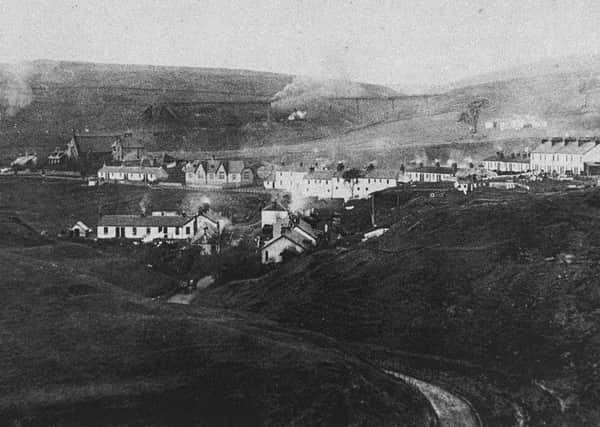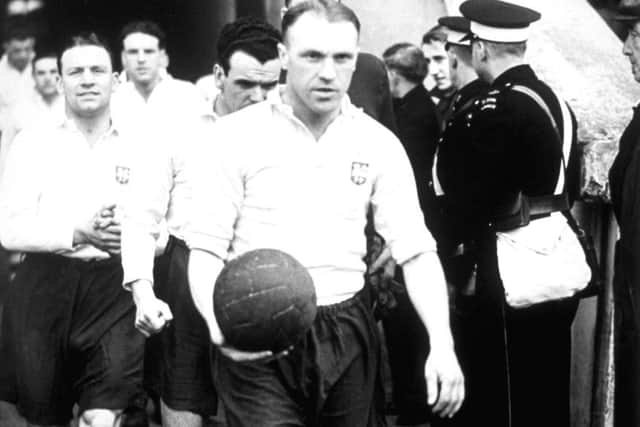Veteran anarchist spearheading plans to revive celebrated Scottish football team


Now, nearly 90 years after its players last lined up on the banks of the River Ayr, the Glenbuck Cherrypickers, one of the most canonised teams in Scottish footballing history, is in line for a resurrection.
An alliance of former residents of the depopulated village, football coaches, and descendants of the Cherrypickers’ founders has formed with the intention of staging a match this autumn on the waterlogged site of what was once Burnside Park.
Advertisement
Hide AdAdvertisement
Hide AdWhile it exported players to the likes of Celtic, Rangers, Manchester City, and Tottenham, the former mining village is best known as the birthplace of Bill Shankly, the legendary Liverpool manager, who credited his formative years down Glenbuck’s pits with instilling in him the work ethic and collectivism that spurred Liverpool on to European glory.


But while Liverpool flourished under the Ayrshireman, the demise of heavy industry spelled Glenbuck’s end. As the pits closed one by one, the Cherrypickers played their valedictory game in 1931 - a 1-0 victory over Lugar Boswell in the replay of the Ayrshire Junior Cup Final - and the village’s fortunes waned until the last inhabitants - among them Shankly’s sister, Liz - eventually decamped in the 1970s.
They were replaced by an opencasting regime so unsparing, it flattened the rows of humble miners’ cottages and rendered the surrounding landscape virtually unrecognisable.
Burnside Park, however, was one of a handful of nooks to survive, throwing up the possibility that, one day, football might be played there again. That day, believes Ian Bone, has arrived.
“It will be the football comeback of all time,” he promised. “Many a club has returned after slipping into non-league football, but none has returned from total devastation and physical destruction.”


The 70-year-old is an unlikely champion of Glenbuck. As a veteran agitator and founder of Class War, the anarchist newspaper, he was once dubbed “the most dangerous man in Britain” by a Sunday tabloid.
But his ties to the mining village stretch back generations. His great grandfather, Edward, co-founded the Cherrypickers in the 1870s, while his grandfather, also Edward, played in goal for them in the 1920s. Reinstating the team, he admitted, is as good as a family obligation, given how it has influenced his own radical political outlook.
“It had the socialist philiosphy Shankly talked about, but when you look at the General Strike in 1926, when the village basically fended for itself by poaching and stealing vegetables, you could say it was almost like an independent Soviet republic,” he explained.
Advertisement
Hide AdAdvertisement
Hide Ad“It was a form of socialism which didn’t come from Marx, or even the Red Clydesiders. It was a totally homegrown politics which sprung out of daily life.”
Bone has joined forces with Robert Gillan, who set up the Glenbuck Football Academy in nearby Douglas to coach scores of local children, and Sam Purdie, 81, one of Glenbuck’s last surviving residents. Ultimately, they want to reinstall a Cherrypickers side in the junior game by joining the Ayrshire District League.
However, the plans for September’s match have been overshadowed by a dispute between the group and Scottish Mines Restoration Trust (SMRT), which became the landowner of Glenbuck in the wake of Scottish Coal’s liquidation.
Professor Russel Griggs, SMRT’s chairman, warned the site of what was once Burnside Park is so dilapidated as to be dangerous, and stressed its failed attempts to secure Heritage Lottery Fund financing for Glenbuck were down to “a lack of community support” and “concerns over the future sustainability” of a restored village.
He said: “We understand the village’s history and heritage, however there are no other potential funding sources available.
“In its current state, the site is dangerous, inaccessible by the public, and is simply not a suitable location for a football match.”
Stressing that SMRT’s approach was backed by the nearby Muirkirk Community Council, he added: ”We will always engage politely and reasonably with any parties who have an interest in any of our sites. Any suggestion that this is not the case is untrue.”
However, the campaigners claim SMRT has failed to back their efforts, with Purdie stating that he has been met with “nothing but hostility and resistance.” Bone has dismissed Griggs as a “procrastinating panjandrum” and vowed the match will go ahead, even if ends up in a “mass trespass.”
Advertisement
Hide AdAdvertisement
Hide AdHe added: “I come from a somewhat different tradition to Robert and Sam. I’m much more into direct action, but I think that marrying our approaches together will work.
GIllan said: “It is the community that is putting the time and effort into reviving Glenbuck’s heritage, but it feels like our voices aren’t being heard.”
Social security minister Jeane Freeman, the SNP MSP for Carrick, Cumnock and Doon Valley, is among those backing the group’s ambitious proposals.
“I fully support their efforts because this is a very important part of the area’s heritage, but I also think it goes wider than Ayrshire,” she said. “It’s an important and, potentially, living part of Scotland’s heritage.”
The rebirth is also supported by Chris Carline, Shankly’s grandson, who now runs a hotel in Liverpool rich in his grandfather’s footballing memorabilia.
“It would be an unbelievable story to have football played in Glenbuck again,” he said. “Not only because of my grandad, but his brothers, Bob, Alec, Jimmy, and John, who all played for the Cherrypickers.”
“It’s a team and place close to my family’s heart, and to see the Cherrypickers play again, that’d be something else.”
Fiona Lees, chief executive of East Ayrshire Council, visited Glenbuck last month, stating that she was “excited” to be working with the community, SMRT, and Forestry Commission Scotland on plans for the area, which include the creation of a geopark.
Advertisement
Hide AdAdvertisement
Hide AdA spokeswoman for the local authority said initial land restoration of Glenbuck was due to be completed in October, after which further work would begin, including planting forestry and designating the village’s footprint.
She added: “The council remains committed to restoring the site and working with all parties to promote the site in respect of its football and coalmining heritage.”